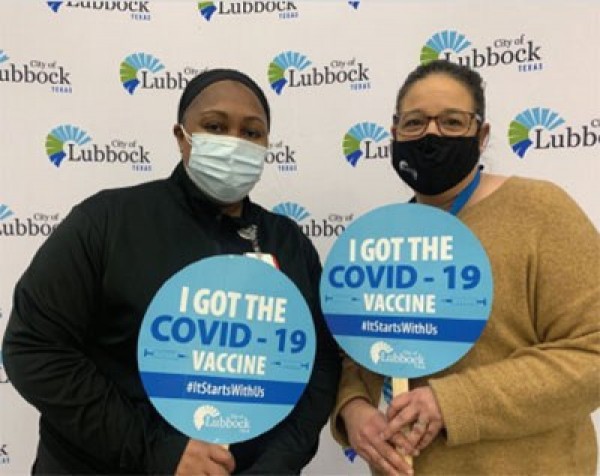In 2020, NACCHO, with the support of the Centers for Disease Control and Prevention (CDC), implemented the project, Supporting Local Health Departments to Increase Vaccine Uptake through COVID-19. The objective of this project is to support local efforts to maintain and increase immunization coverage of routinely recommended vaccines including influenza, as well as protect vulnerable communities during the COVID-19 pandemic. The project funds 10 local health departments (LHD) and is designed to identify, engage, and protect at-risk or vulnerable populations through collaboration and coordination with partners at the national, state, and local level to provide capacity building and technical assistance, training, information sharing, and material development to strengthen public health immunization strategies.
In addition, the project aims to document and share strategies that the local health departments employ to achieve greater vaccine uptake. Four of the jurisdictions participating in this project have now been profiled as success stories for their unique approaches educating and vaccinating their populations in the COVID-19 Vaccine Community Features on CDC.gov. We invite our Membership to take a moment to read the experiences of these four local health departments, as well as the other community features shared by CDC, and hope that you find their lessons useful as you navigate increasing vaccine uptake in your own jurisdictions.
Minneapolis Health Department’s (MHD)confidence building work with the Somali population was featured in the resource post, Trusted Partners Help Minneapolis Somali Community Get Vaccinated. Minneapolis is home to the largest population of Somalis in North America. When COVID-19 vaccines gradually became available to the general U.S. population in early 2021, vaccine demand among the roughly 52,000 people in the Minneapolis Somali community was low, and vaccine hesitancy was a major challenge. This blog post details some of the key partnerships and collaborative efforts that MHD attributes to their success in increasing COVID-19 vaccinations among Minneapolis Somalis.
The City of Lubbock Health Department’s (CLHD) COVID-19 vaccination efforts were featured in the resource post, Lubbock, Texas and Citibus Mobilize to Vaccinate Minority Communities. A key part of CLHD’s vaccine uptake strategy was leveraging a close, existing partnership with Citibus, a public transportation provider for the city. CLHD and Citibus targeted populations with low vaccination rates and brought vaccines to those communities by turning the Citibuses into mobile vaccination clinics and wrapping the buses in promotional messaging and images. This blog post highlights the importance of building community trust and how overcoming logistical barriers can create innovative paths to success.
Pima County Health Department’s (PCHD) youth engagement campaign was featured in the resource post, Youth in Pima County, Arizona Inspire Community with #VaxTruthChallenge Videos. PCHD sought to increase vaccine uptake among eligible 12 to 17-year-olds by collaborating with local youth advisors who helped identify strategies most appealing to their peers. One such strategy is #VaxTruthChallenge, a social media contest in which residents aged 24 and younger create and submit COVID-19 vaccination promotional videos on social media. This experience highlighted for PCHD that young people want to be engaged in problem solving and meeting youth where they are on social media is key to normalizing COVID-19 vaccinations.
Central District Health’s (CDH) collaboration with partners, such as Albertson’s grocery store pharmacies and mobile vaccination clinics, to vaccinate hard to reach populations was featured in the resource post, Partnerships Key to COVID-19 Vaccinations in Rural and Frontier Central Idaho. To access medical care, residents in these rural and frontier Idaho counties must travel through mountainous terrain. Not only was Boise City-based Albertsons Grocery Store pharmacy one of the few providers with adequate cold storage freezers needed to house and transport COVID-19 vaccines, but it was also one of the first local vaccine providers with mobile vaccination capacity. This blog post recognizes the importance of relationships to the efforts of CDH, while Idaho continues to address vaccine hesitancy challenges in rural and frontier areas, CDH believes strong partnerships are key to vaccine uptake.



